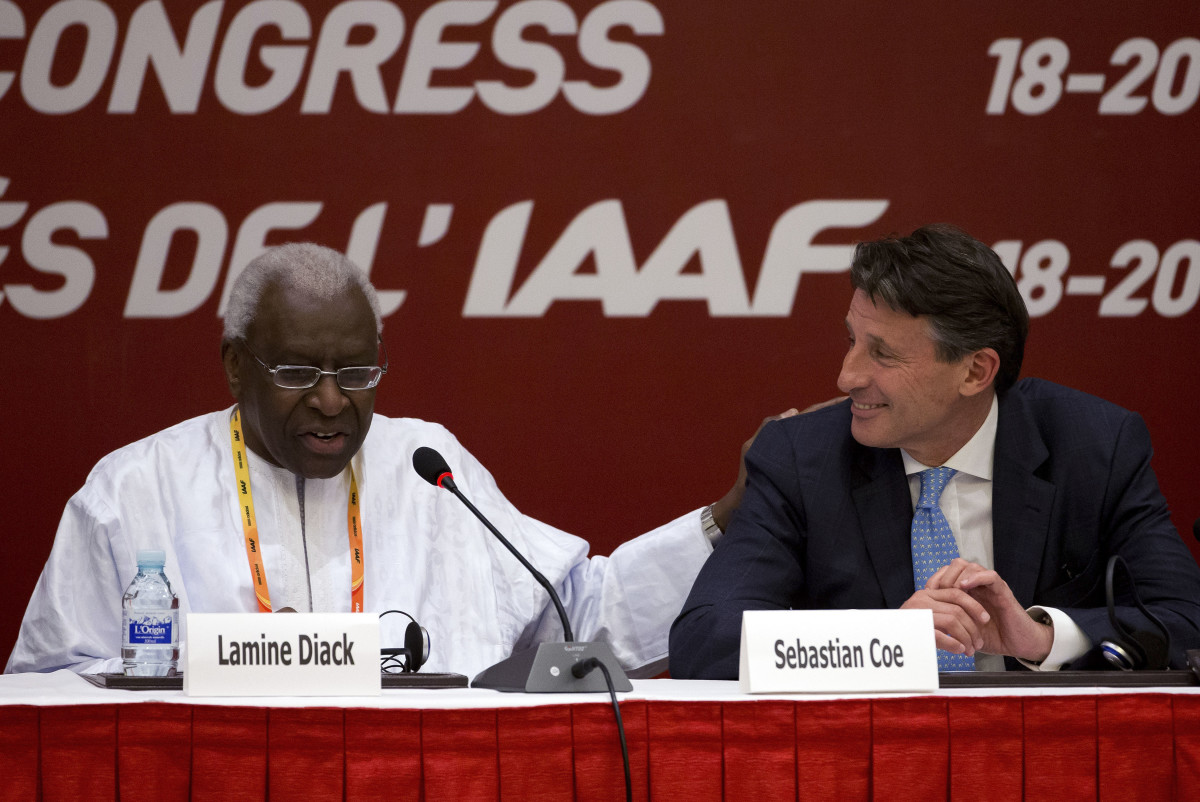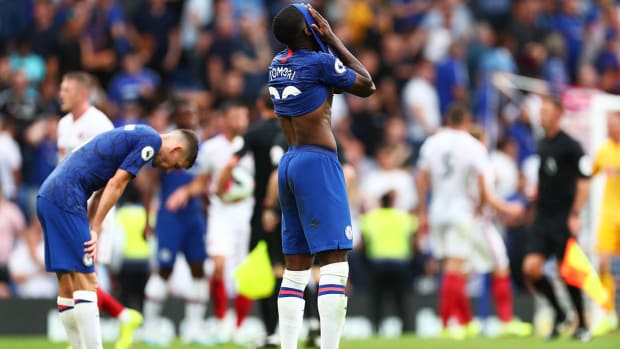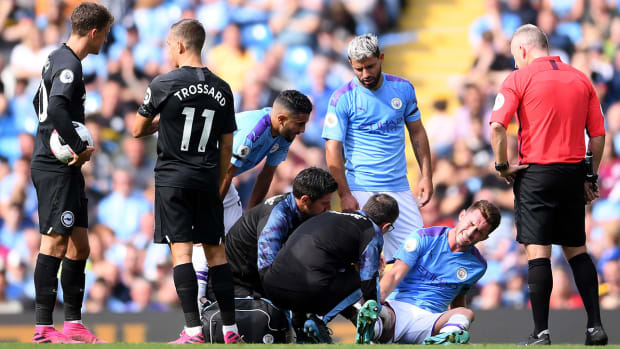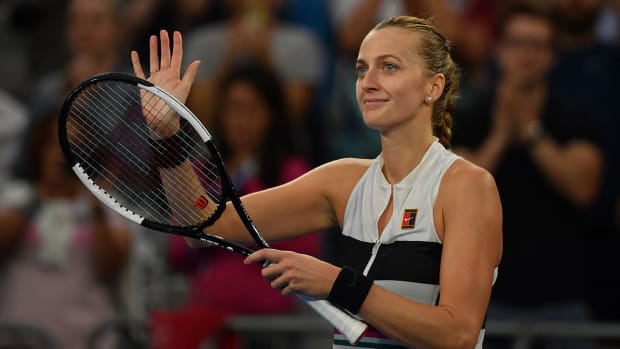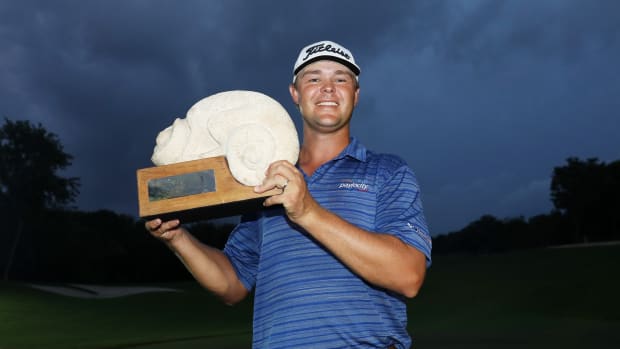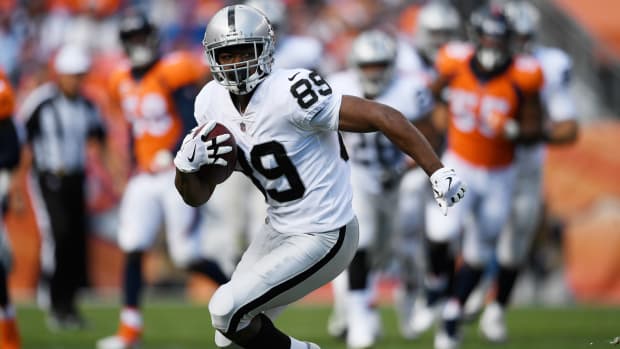Coe: IAAF faces 'long way back' to trust amid doping crisis
LONDON (AP) IAAF President Sebastian Coe said Sunday that his sport faces a ''long way back'' before it can restore trust and credibility amid the ''dark days'' of the bribery, extortion and doping cover-up allegations that are shaking track and field.
In an interview with The Associated Press, Coe also discounted - though didn't rule out completely - the possibility of banning Russia from international competition because of its record on doping.
''I'm never saying never, but my instinct is that these things are better changed through engagement not isolation,'' he said.
Coe spoke a day before the World Anti-Doping Agency releases the findings of its independent investigation into allegations of widespread and systematic doping in Russia.
The WADA report will add to the crisis enveloping the sport after Coe's longtime predecessor as IAAF president, Lamine Diack, and two other people were placed under criminal investigation in France on corruption charges related to Russian doping cases.
''I'm just angry, bloody angry,'' Coe told the AP in a telephone interview. ''I'm angry about the position our sport is in today. I'm shocked, I'm angered and dismayed. These are dark days.''
''We shouldn't kid ourselves,'' he added. ''It's going to be a long way back to rebuilding trust.''
Coe, the British middle-distance great who organized the 2012 London Olympics, was elected in August to succeed Diack, who headed the International Association of Athletics Federations for 16 years. Coe said he had immediately initiated a complete review of the IAAF, which will now deal with the current allegations.
''I will have a raft of reforms in place and ready for the approval of the council in two weeks' time,'' he said. ''Everything is under review. I'm more determined than ever to create a sport that is accountable, responsible and responsive.''
Diack was taken into police custody last Sunday and released two days later after being charged with corruption and money laundering, suspected of taking more than 1 million euros ($1.1 million) to cover up positive doping tests.
Diack's legal adviser at the IAAF, Habib Cisse, and Gabriel Dolle, a doctor who managed the IAAF's anti-doping program, were also detained and charged with corruption.
The IAAF ethics commission also confirmed that Diack's son, Papa Massata Diack, Dolle and two Russian officials were facing sanctions in connection with helping a Russian marathon runner avoid a doping ban before the London Games.
''If these allegations are true, they are abhorrent, and my job is to make sure we're never able to return this place again,'' Coe said.
Coe served for eight years as a vice president under Diack and often praised him, calling him the IAAF's ''spiritual president'' before replacing him as leader.
''I'm well aware I'm going to come into some criticism for those remarks,'' Coe said. ''It does pre-suppose I had a list of allegations in front of me. I didn't. Should we have known more? Possibly.''
Coe said he hasn't seen the report by WADA, whose investigation was led by its former president Dick Pound. His findings will be presented at a news conference Monday in Geneva.
WADA launched the probe after German broadcaster ARD alleged organized doping in Russia in athletics, as well as other sports. The ARD investigation implicated Russian officials in acts of bribery to hush up positive doping tests, falsify tests and supply banned drugs.
''We will absorb whatever the Pound report says, and in the light of that, our actions will be tough and proportionate,'' Coe said.
If Pound's report discloses further evidence of systemic Russian doping, the IAAF will come under further pressure to suspend the national federation. However, Coe said that's not in his plans.
''I always believed in engagement,'' he said. ''You can still be tough in that process. I'm not saying never, but this is not the departure point.''
Coe, who traveled to Russia last week, said he stressed the need for tough anti-doping programs in talks with top sports officials.
He also defended the IAAF's anti-doping program, saying that 69 athletes in track and field - out of a total of 85 in all sports - have been sanctioned since the federation's biological passport program was implemented in 2011.
''Every doping case being investigated by WADA was first identified through the IAAF and its blood passport program,'' Coe said. ''The best way to cover up an anti-doping case is not to test athletes at all.''
